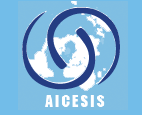AICESIS, European Semester Group of the EESC

Portugal- Conseil Économique et Social
Institutional characteristics
Establishment
Date of creation: August 17, 1991
Legal Framework: Established under Law No. 108/91, as outlined in Article 92 of the Portuguese Constitution
Composition
Number of members of the ESC: 76 members (including the President)
Duration of the term 4 years renewable
Process of designating the members The President of the Council begins the process of appointing Members of the Plenary in the 15 days following his inauguration as provided in Law No. 108/91 of 17 August.
Mission and attributions
The Economic and Social Council is a constitutional body for consultation and social concertation. Its main goals are to promote the participation of economic and social agents in the decision-making process of the organs of sovereignty, mainly within the scope of social and economic issues. It is the prime space for dialogue between the Government, the Social Partners, and the remaining representatives of an organised civil society.
The Constitution of the Portuguese Republic (Article 92) grants the Council two types of competencies, one consultative and the other of social concertation.
The Council’s consultation role is taken forward via the collaboration with organisations that represent the Portuguese society and economic agents and is carried out by writing opinion reports, either requested by the Government or other organs of sovereignty, or upon the Council’s own initiative. Through these opinion reports, the Council expresses an opinion on the final drafts of policy documents such as the country’s major options of the plan, plans for economic and social development, economic and social policies, Portugal’s place in European institutions in light of those policies, the use of European funds at the national level, the country’s policies of restructuring and social and economic development, the country’s economic and social situation, and the regional development policies.
The social concertation role aims to promote social dialogue and negotiation between the Government and the Social Partners – the latter being trade unions and employers’ representatives – and it is taken forward via tripartite negotiations with representatives of such bodies, during which legislation proposals are appraised, especially with regards to social and labour issues, and social concertation agreements take place.
The arbitration activity also operates under the Council, and it aims at settling collective conflicts in the labour relations. Arbitration takes on several forms, namely mandatory arbitration, required arbitration and arbitration to define minimum services.
Administrative organization and functioning of the ESC
The Economic and Social Council’s work is carried out via the legal entities that constitute it, namely the President, the Plenary, the Specialised Standing Committee on Social and Economic Policy, the Specialised Standing Committee for Regional Development and Land Planning, the Specialised Interdisciplinary Standing Committee for Fertility, the Coordinating Board, the Administrative Board, and the Social Concertation Standing Committee. The latter works independently of the Social and Economic Council, which is nonetheless tasked with providing the logistic and administrative support for its functioning.
The President of the Council is one of the Council’s governing bodies and is appointed by the Portuguese Parliament, by a majority of two thirds of the Members present, as long as this is greater than the majority of MPs in office. His/her mandate corresponds to the legislative period of Parliament and is renewable without limitations. He/she represents the Council at national and international levels, in addition to presiding and coordinating its several bodies, namely the Plenary, the Coordinating Board, and the Administrative Board. Also has a seat in the Social Concertation Standing Committee, with no voting rights.
The Plenary consists of 76 full members – the advisors – including the President of the Social and Economic Council, who chairs the Plenary meetings and is elected by Parliament, and four Vice-Presidents, elected by the Plenary itself, and who assist the President.
Although the Council’s advisory members are not formally associated with a group, it is possible to consider six groups, distinguished by the nature of the interests the advisors represent:
• Government
• Employers
• Workers
• Representatives of regional and local government
• Sundry interests
• Individuals of renowned merit
The Plenary holds a vast range of functions and roles, of which the opinion reports of Government proposals are highlighted, such as the final draft proposals for the “Major Options of the Plan,” and the “Social and Economic Development Plans”. Unless stated otherwise in legal or regulated proceedings, the Plenary’s decisions are taken via simple majority, with the president having the deciding vote, in case of a tie. Voting at Plenary meetings is public, unless the Social and Economic Council is deliberating on a request from the organs of sovereignty.
International Activities:
sharing best practices by maintaining close cooperation with:
• AICESIS
• European Economic and Social Committee (EESC)
• The other EU ESCs
- 205 Estrada das Laranjeiras, Lisboa, Lisboa 1600-139, Lisboa, Lisboa, Portugal
- +32 2 2338811
-
ces.portugal@ces.pt
- www.ces.pt






Portugal- Conseil Économique et Social